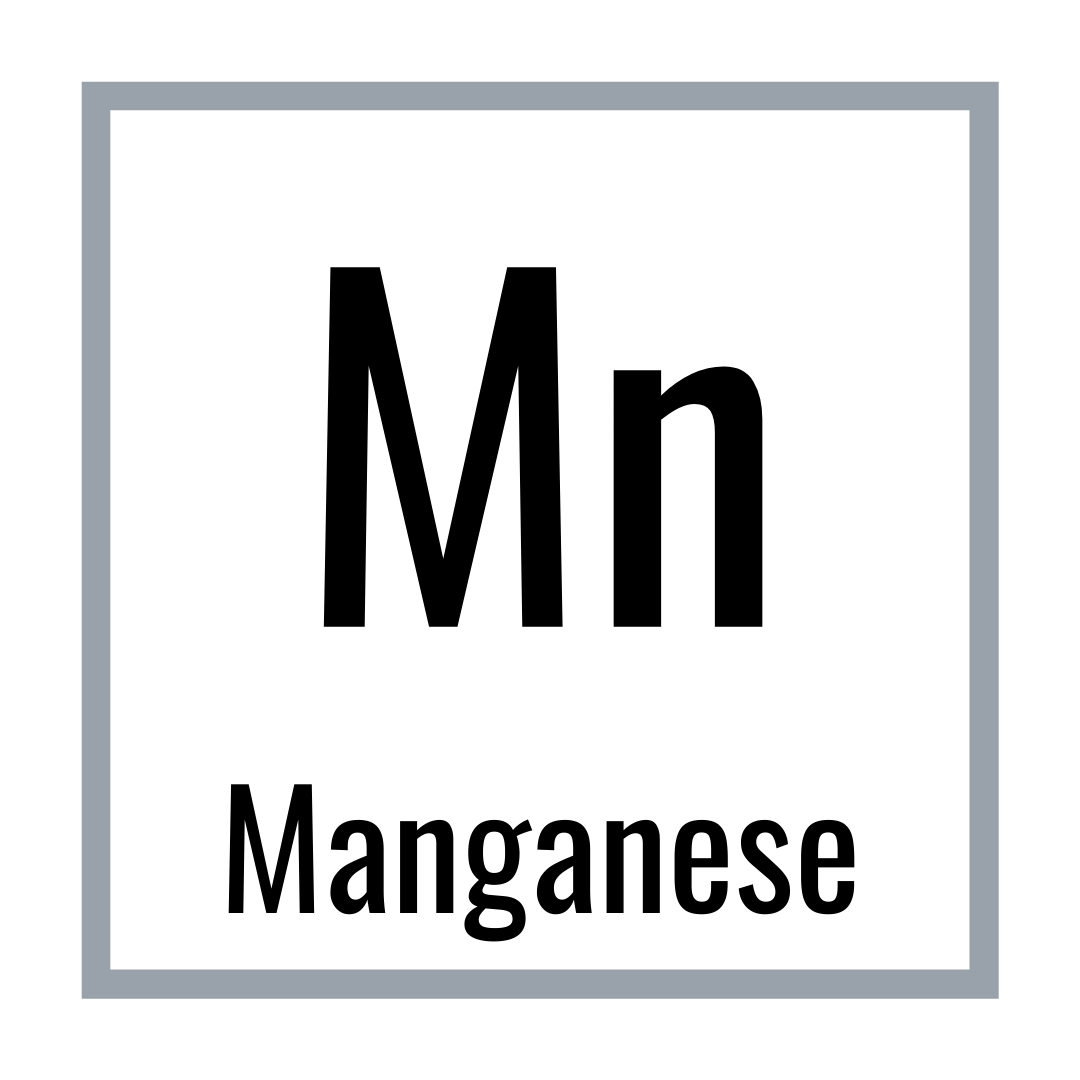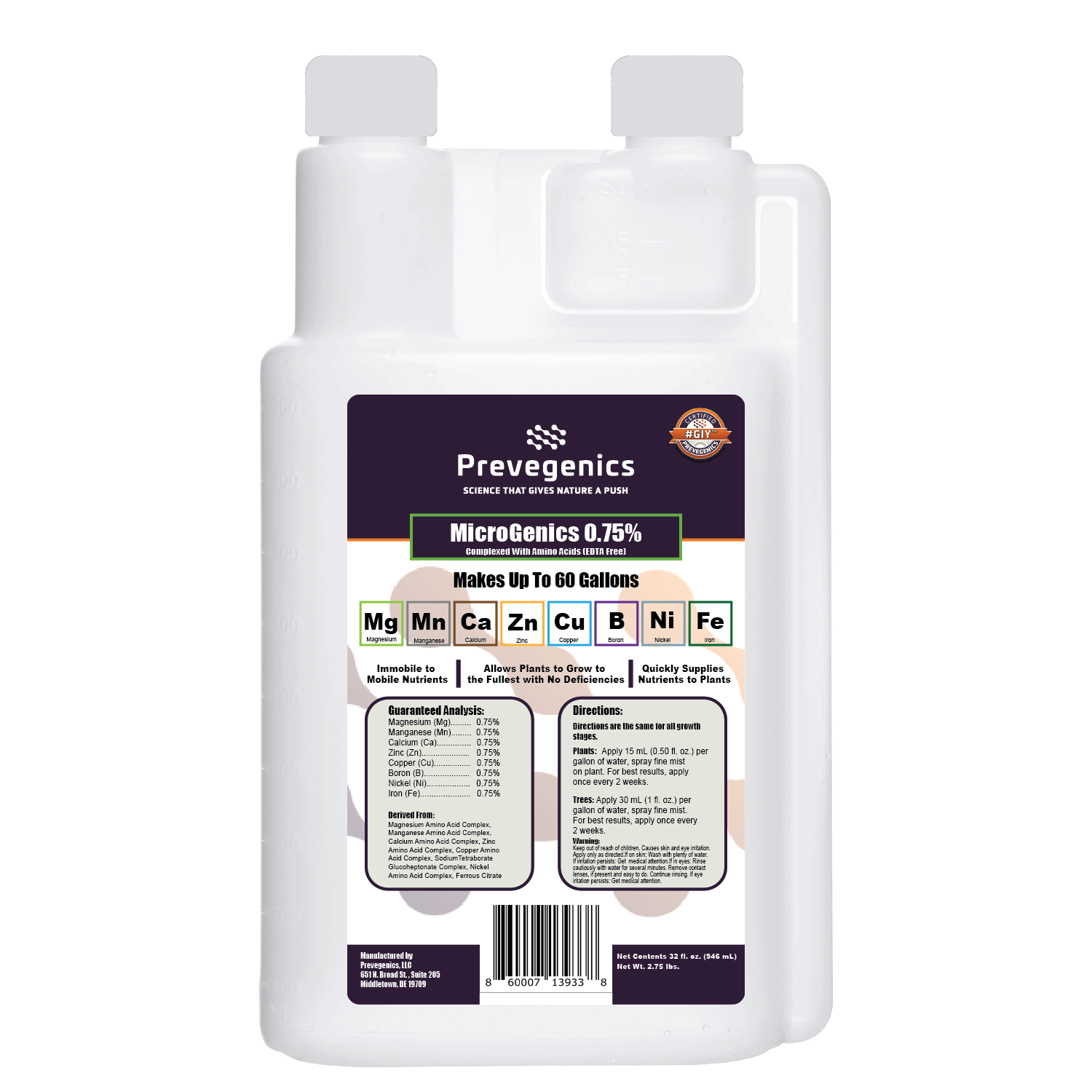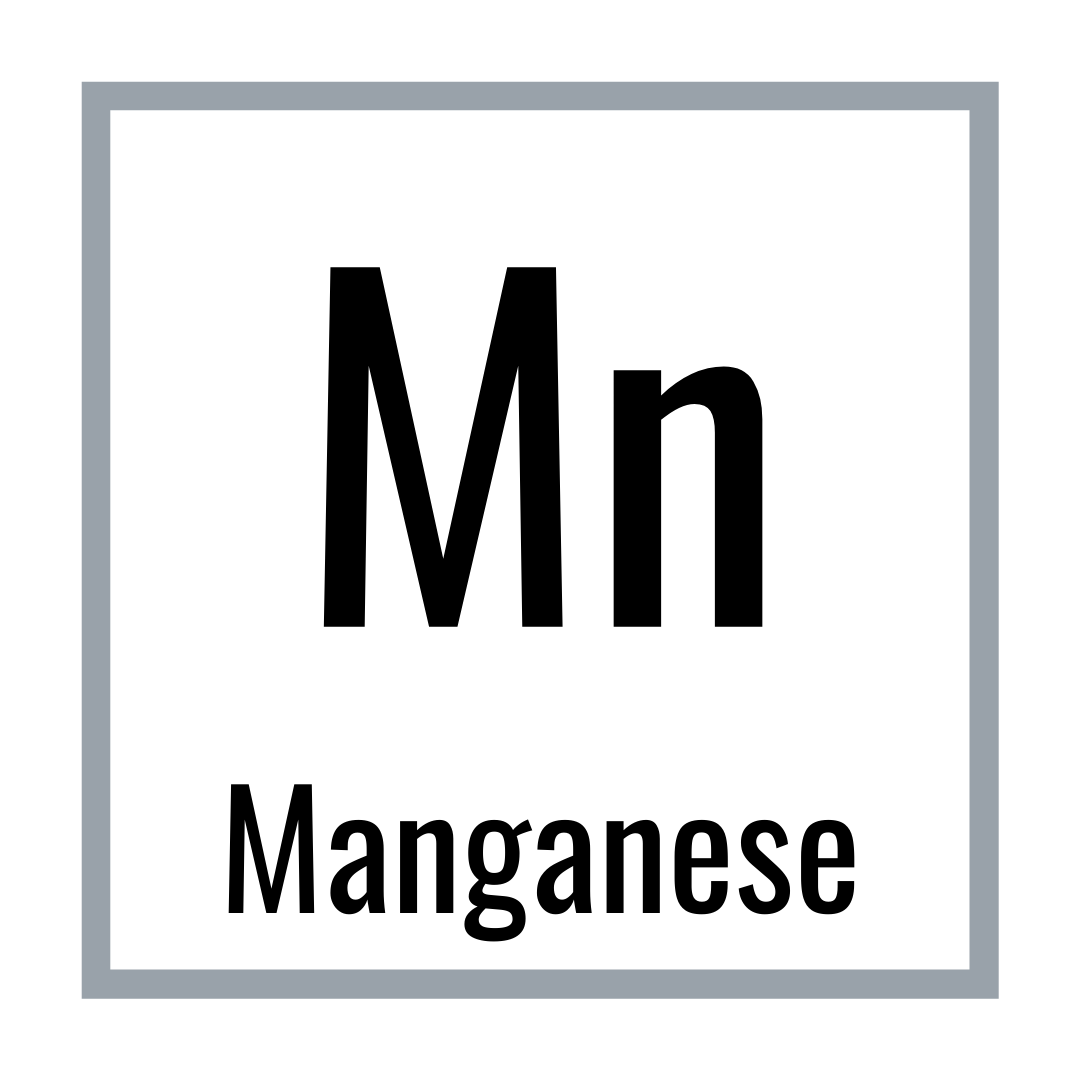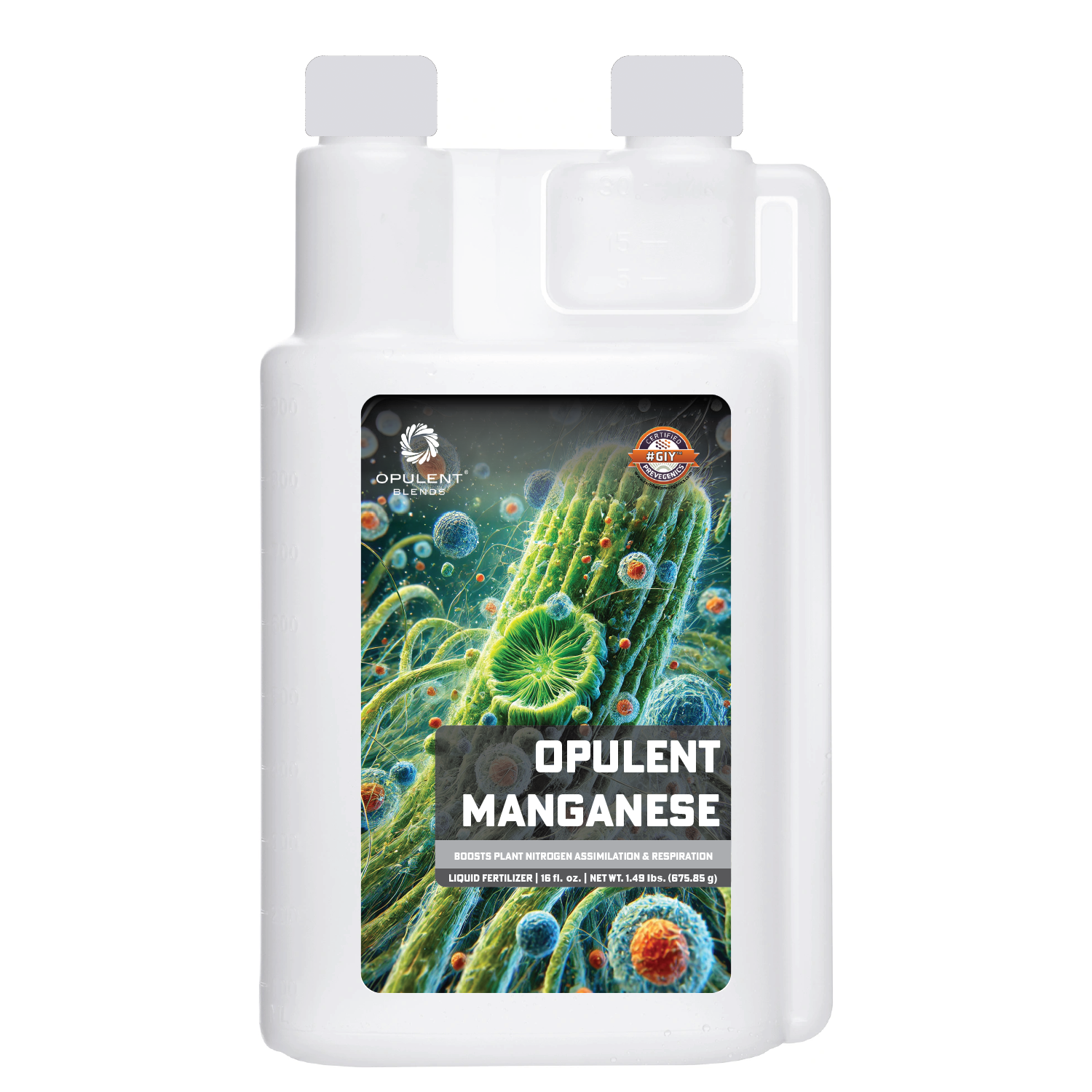
WHY IS MANGANESE IMPORTANT?
Manganese is an essential micronutrient required by plants for various physiological processes, including photosynthesis, respiration, and enzyme activation. Manganese plays a critical role in the production of chlorophyll, the pigment responsible for the green color of leaves, and is therefore essential for plant growth and development.
Manganese is typically found in the soil in the form of manganese oxide or manganese carbonate, which are not easily taken up by plants. Soil pH and organic matter content can also affect the availability of manganese to plants. In soils with high pH or low organic matter content, manganese may be deficient, leading to decreased plant growth and productivity.

DEFICIENCY
Manganese is an essential micronutrient required by plants and lawns for various physiological processes. Manganese deficiency can occur when there is insufficient manganese available in the soil or when the soil pH is too high or too low. The symptoms of manganese deficiency can vary depending on the severity and duration of the deficiency.
In plants, manganese deficiency can lead to chlorosis (yellowing) of leaves, stunted growth, and reduced plant vigor. The chlorosis typically appears first on the younger leaves and progresses to the older leaves. In severe cases, the leaves may develop necrotic spots or margins, and the plant may eventually die. Manganese deficiency can also lead to decreased photosynthetic efficiency, leading to reduced plant growth and productivity.
In lawns, manganese deficiency can lead to yellowing or browning of grass blades, stunted growth, and reduced turf quality. The grass may appear sparse and weak, and the lawn may become susceptible to weed invasion and disease. Manganese deficiency can also affect the root development of grass, leading to decreased water and nutrient uptake.
MANGANESE FERTILIZERS
MicroGenics 0.75%





